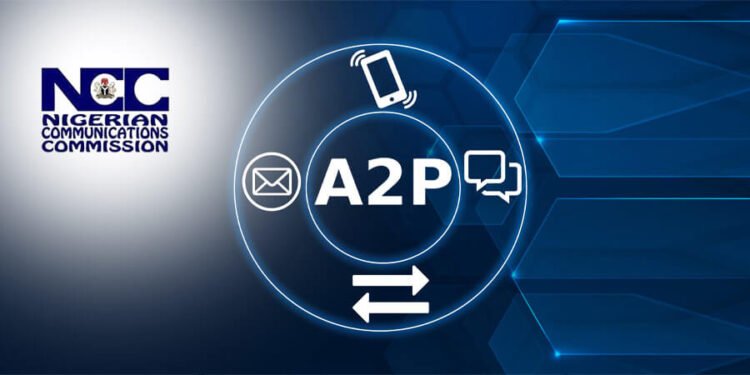Aminu Maida, Executive Vice Chairman (EVC) of the Nigerian Communications Commission (NCC), announced plans to introduce a draft regulatory framework to tackle fraud, spam, and data privacy issues within the application-to-person (A2P) messaging sector.
Maida emphasized the critical role of A2P messaging in the digital ecosystem. A2P messaging enables businesses to use automated applications to send mobile messages, typically for marketing, directly to users.
Represented by Chizua Whyte, Head of Legal and Regulatory Services at NCC, Maida noted that A2P messaging has become essential for delivering various notifications, including transactional, promotional, and service-related messages.
“A2P messaging has become the preferred platform for businesses to directly communicate with consumers, whether through bank alerts, healthcare reminders, promotional campaigns, or government updates,” Maida said. “This system drives efficiency, enhances communication, and supports socio-economic development.”
The NCC prioritizes the success of A2P messaging by addressing the needs of three key stakeholders: the government, consumers, and the industry.
“For the government, A2P messaging facilitates effective communication with citizens, ensuring the seamless delivery of public services and information. For consumers, it guarantees secure, timely, and reliable access to critical updates and services,” Maida explained. “For the industry, it fosters innovation, drives competition, and enables sustainable growth for businesses and service providers.”
Despite its benefits, the international A2P messaging ecosystem in Nigeria faces challenges such as fraud, spam, data privacy concerns, and unfair distribution of value. These issues not only affect consumers and businesses but also threaten the sustainability of this critical communication tool, Maida warned.
“This forum represents a crucial step toward addressing these challenges,” he added. “Today, we present the proposed regulatory framework for A2P messaging to you, our valued stakeholders, for deliberation.”











